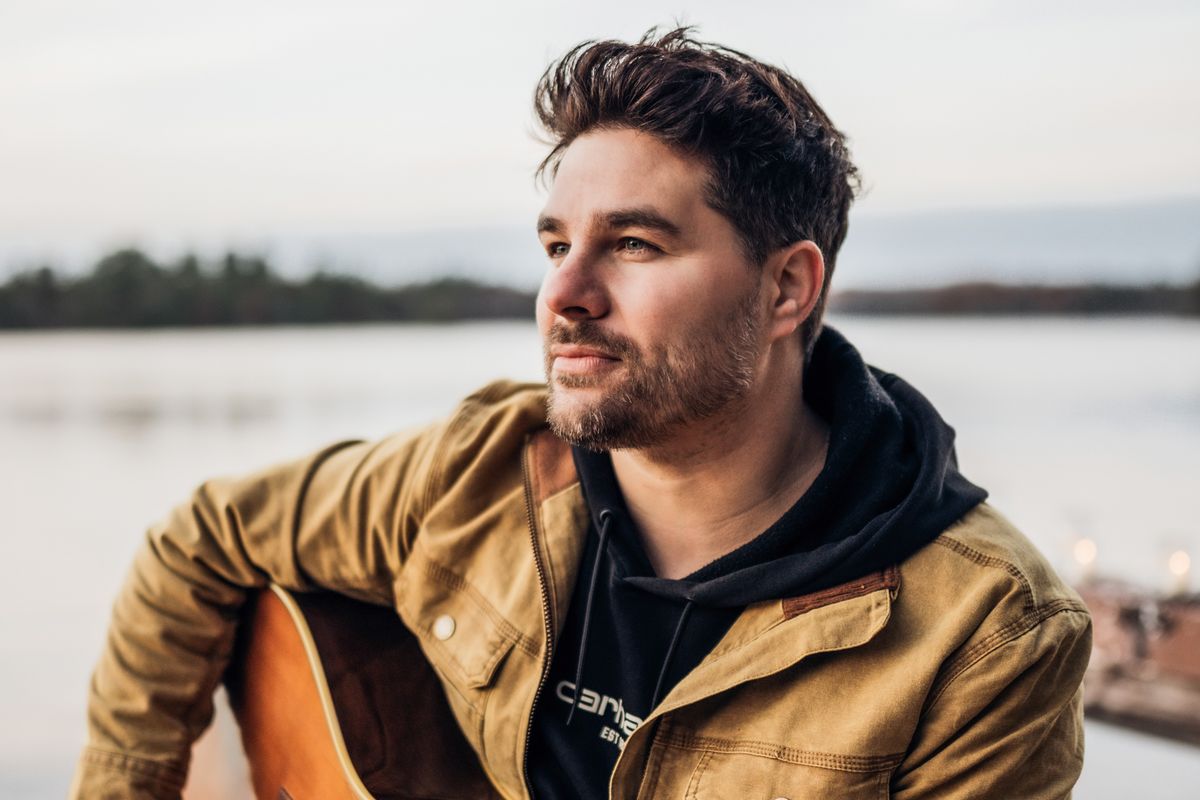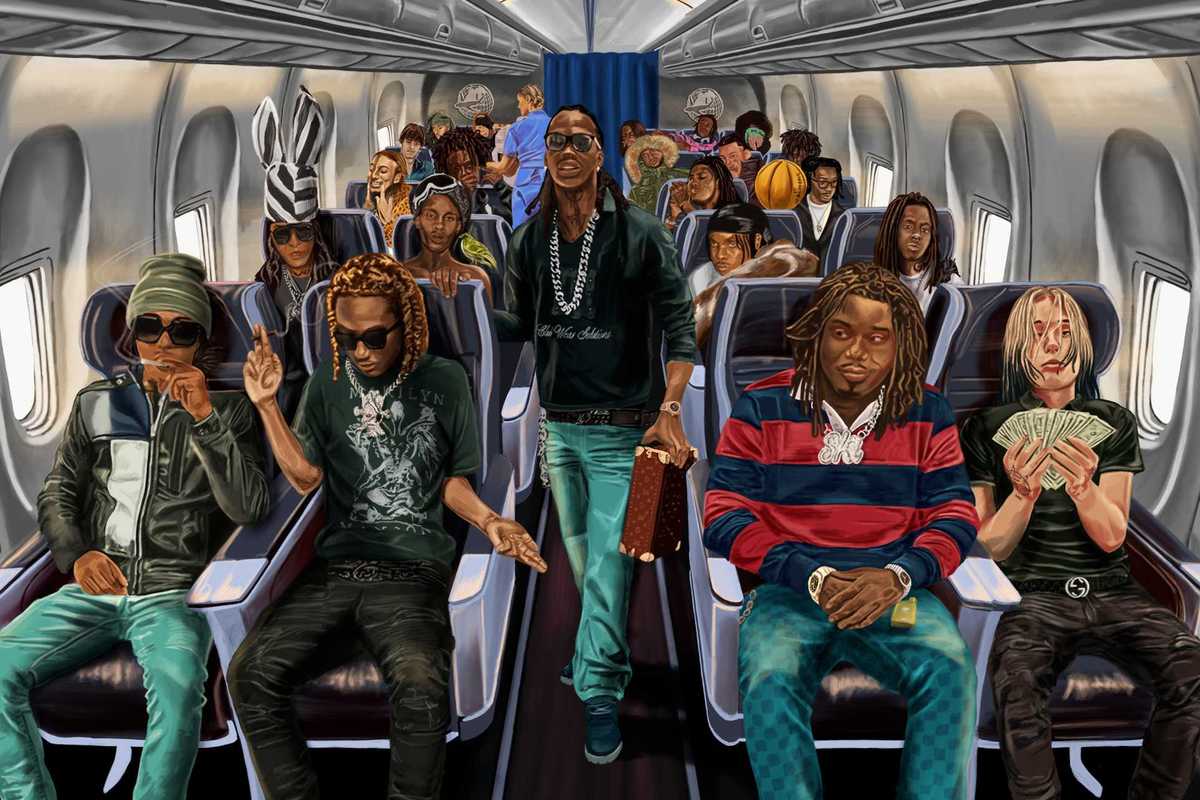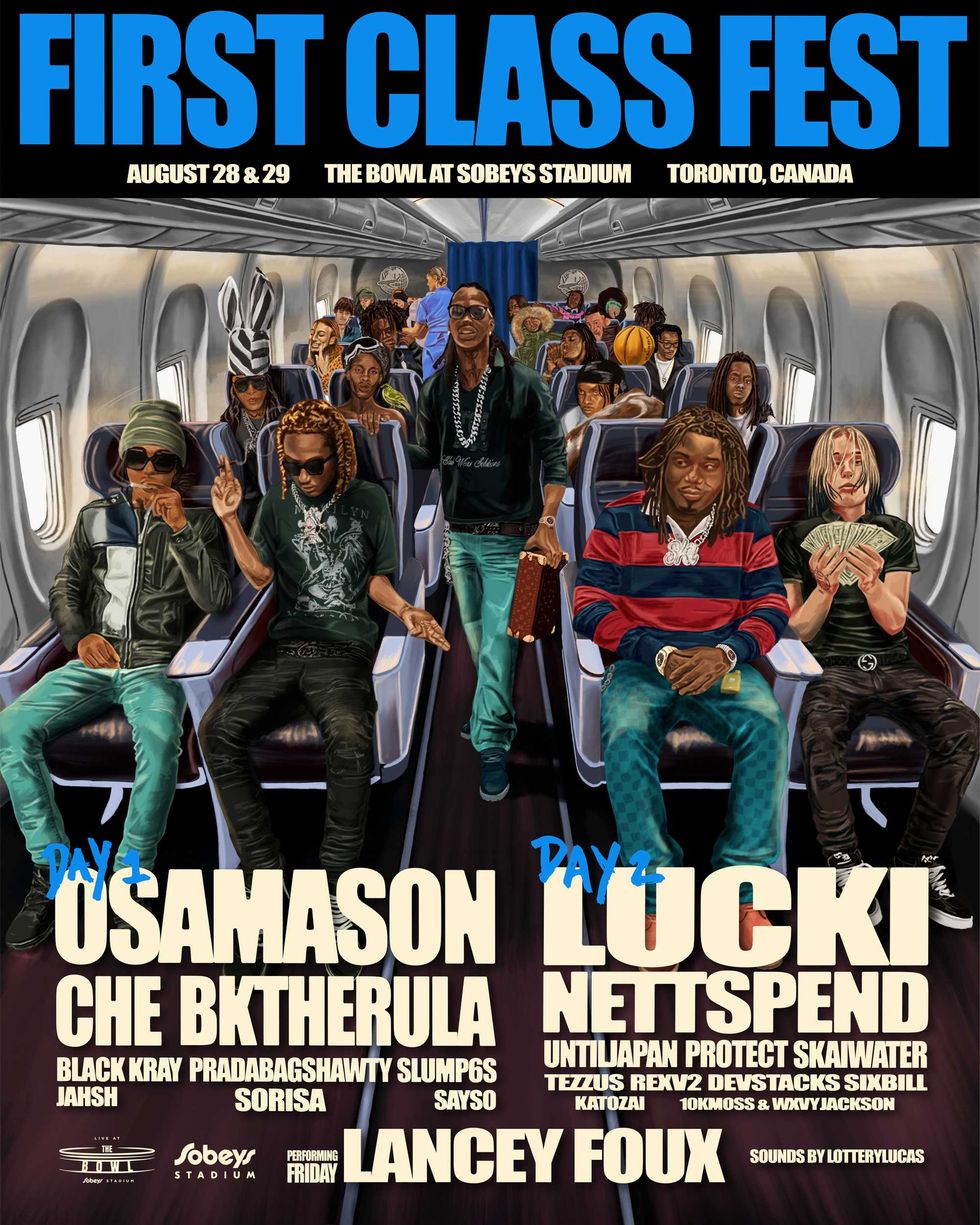A Conversation With Steven Lee Olsen
The Canadian country singer/songwriter is breaking big in Nashville. Learn more in his interview with Bill King.

Steven Lee Olsen
Steven Lee Olsen's journey in the music industry is indeed impressive and highlights his dedication to honing his craft. Moving from Toronto to Nashville, a city renowned for its vibrant music scene, demonstrates his commitment to pursuing his dreams in songwriting. It's noteworthy that Olsen drew upon a diverse range of musical influences, including R&B, soul, country and pop, which likely contributed to the versatility and broad appeal of his songwriting.
His perseverance in Music City paid off as he ascended the ranks of Nashville songwriters, earning recognition for his talent. Having his work recorded by prominent country artists such as Keith Urban, Garth Brooks, Rascal Flatts, Billy Currington, The Judds and Dallas Smith is a testament to the quality and appeal of his songwriting.
The achievement of two No.1 hits in the U.S. with "Blue Ain't Your Color," performed by Keith Urban, and "More Girls Like You," performed by Kip Moore, is a significant milestone in his career. These accomplishments, coupled with the Grammy nomination and double-platinum certification for "Blue Ain't Your Color," showcase the widespread success and impact of his work on a global scale.
Reaching No.1 in Canada with co-writing credits on the platinum hit "Drop," performed by Dallas Smith, further solidifies his standing as a respected and influential songwriter in both the U.S. and Canadian country music scenes.
Overall, Steven Lee Olsen's journey is a compelling narrative of talent, hard work and perseverance in the competitive world of songwriting and the music industry at large. His ability to collaborate with diverse artists and create hits that resonate with audiences across borders underscores his significance in contemporary country music.
Following the release of a demo on TikTok last year, the profound impact of the song "Happy Heavenly" surged into prominence, as thousands took to the platform to share poignant tributes to departed loved ones. The song, as observed by its creator, resonates deeply with the universal theme of human suffering, casting a spotlight on the inherent pain in such tributes. However, upon closer examination, we can see a transformative narrative in which the creator transmutes sorrow into a celebration. The song encourages the audience to gaze skyward, expressing love and hopeful sentiments to those no longer present. This dual nature of the song, juxtaposing pain with a healing celebration, motivated the decision to release it officially, recognizing its unique ability to channel grief into a poignant yet uplifting musical experience.
@stevenleeolsenmusic Happy Heavenly birthday to you. 😇💙🙏 #unreleased #musicoftiktok #originalsong #birthday #heavenly #happyheavenlybirthday
[The lyrics to "Nashville Or Nothing":] "I had my six-string in the back of my Sebring. Mama cried when I hit the road, cause all I ever wanted to be on the other side of the radio. And it took me 16 hours, one toll, three tanks of gas. When I saw the Batman Tower, there was no turning back." Are you sure this wasn’t Newmarket to Nashville?
This absolutely was 100 percent Newmarket to Nashville. There’s no question about it. And even hearing those lyrics back, I’ve never heard it read out loud like that by somebody else. It took me back. I was like, Oh man, that’s a pretty cool story.
It’s poetic. It’s yours. When telling your backstory, you don’t have to craft for hit radio.
That was the purpose behind putting out that song. It was kind of a selfish single, I like to call it. I’ve been putting out songs for a long time. I realized few people knew who I was. I was giving people songs I thought would hit the radio, and as I’ve gotten older, I was like, man, it’s like the real connection is with the fans that connect you as a human first, and the music ends up being a byproduct. That’s how you get lifelong fans by honestly letting them in. That was the start of that for me. I’m happy you brought that up.
You arrived in Nashville, what, 2004?
Yeah, I’ve been here almost... Jeez, is it going on 17? I feel like I’ve been saying 16 years forever. It’s been a long time.
Your intention was to relocate and write hit songs?
When I came here, I was still that man, so young, and knew nothing about anything or how the business side worked. All I knew was that I loved country music. I’ve been playing some shows, doing a lot of cover stuff, and I’d written a few songs. I knew that if I wanted to do it at the highest level, like my heroes, I knew I had to move to Nashville. Fortunately, I had the best champion, a little music guardian angel, that helped facilitate all those things for me. His name was Steven Lawrence.
I was working at a car dealership in Newmarket, at an Audi dealership, detailing cars, and I brought my guitar in one day to play for the receptionist named Burgundy in the parking lot. Steve overheard. He was the top salesperson in Canada, leading the used car department — a highly successful individual. Having kids caused him to let go of his dream of being a musician in a band and writing songs. He saw and heard me play for her. Then I hear over the intercom, "Steven Lee Olsen, please come to Steve Lawrence's office." I thought I was getting fired. Oh my God, I've only had this job for two months.
He pulled me into his office and said, “Dude, what are you doing with that?” I told him I'd played some shows and written a few songs and my goals and dreams, and he saw the tenacity in me and bought me my first nice guitar. Paid for my demos done in a garage and put bands together and drove me to Nashville the first time, managed my career a short while before handing over to Ron Kitchener. It's those beautiful little accidents that truly paved the way for me.
What a great story. Getting the publishing deal, were you paired with other songwriters?
My first publishing deal was horrible. It was like six to eight hundred dollars Canadian a month. I lived there literally, like a starving artist. Sometimes I had to go into my publishing companies at night and steal toilet paper and snacks to make it through. Looking back now, I still thought I was the lucky one.
What was the first song you placed?
Craig Morgan. He was signed to Sony. It was a song I wrote called “Ordinary Angels,” and it was amazing. I’d been doing it for so long. It seemed like six, seven years. I’ve been doing it for so long that I forgot why I was doing it. Like most people in town, they are writing to get cuts and trying to make money. I was happy writing songs. I’d never tasted or seen any songs get cut or what can happen when they do. And there are singles, and they blow up. And there are awards and royalty checks. I’d seen none of that. My focus was on being in Nashville, writing as many songs as possible, and striving to ascend the ladder. When I finally got a cut out, it put a spotlight on me for a half second. And that helped me get through other doors. Bigger writers, which eventually led to bigger cuts.
This is that partnership, right? Get with a team of writers with those connections? Keith Urban covered one of your co-writes, and it’s spectacular: “Blue Ain’t Your Color.”
When I moved to Nashville, I knew every Keith Urban song. I knew how to play every one of them, because that was my guy. I was like, man, this is like country music. Seeing someone from Australia, who didn't speak with a southern accent like those from Alabama, Mississippi, Georgia, or the rest of the South in the United States, and who was gaining international recognition on the radio, was truly inspiring. And wasn’t wearing a cowboy hat, cowboy boots, or buckle; he was just doing his own thing and carving his own path. It really made me feel like, if he could do it, maybe a Canadian boy from Newmarket could make some waves too.
What was the next song?
I always say I ruined the Judds’ career because I had their last single. The Judds released a song called "I Will Stand By You" that they cut. That was a cool one. They hadn’t had a song on the radio for a decade, I swear. But I found the cut to be quite cool. It was also a single for me. I don’t think it did anything on the radio, so I said I killed their career.
Garth Brooks? That’s epic!
Garth Brooks. That's unquestionably one of the biggest shockers as a writer. I got that, I want to say, just after I signed my record deal with Sony, with Columbia here in Nashville. As a writer, that was one of the coolest things I’d ever had. It doesn’t matter where you are in the world. If somebody says you’ve written songs for Garth Brooks, they know who that is. The biggest-selling male artist of all time, all genres. I reckon the reason he cut one of my songs is that there's when I genuinely stole a page from his vocal book and did one of those Garth growls.
“Raised by a Good Time” — Your first hit as a solo artist?
It depends on what you call it. I had a song I put out called “Make Hay While the Sun Shines.” It was the second song I ever put out to radio. That song was like the top three most played songs in Canada that year. It’s hilarious, because it’s still one of my biggest songs when I play live. People love that song, especially farmers. And I get it now because I live on a farm and I’m like, Oh yeah, a lot of these lyrics kind of apply. I’d say that was probably my first taste of radio success, but “Raised by a Good Time” is still the biggest song, aside from “Blue Ain’t Your Color” in my set.
The new single is called “Happy Heavenly,” and how did this come about?
This one is just raw emotion. I didn’t write it to anybody else. I wrote it for myself. I’d lost one of my best friends on the planet a few years ago. The person you call every day about everything, and he was older. He dated my mom when they were in high school, and we stayed friends, and it left a void in my life – I guess for a male figure. He stepped up and helped me get through some tough parts of my life. He showed me how to be confident, approach girls and exude charisma. He guided me towards the correct path and passed away a few years ago, and every year on his birthday since that day was getting harder and harder.
Grief isn’t something they teach you. It’s not talked about until you have to go through it. I say, go through it, because there’s no way around it. Every year on his birthday, I’d find myself so down, and there would be tears. I had so many amazing years with this man. His name was Ian, and he profoundly helped shape me into who I am. I thought he deserved more than that on his birthday. And I wanted to change those tears to smiles. So, I wrote this as a letter to him, which ended up being “Happy Heavenly.”


















